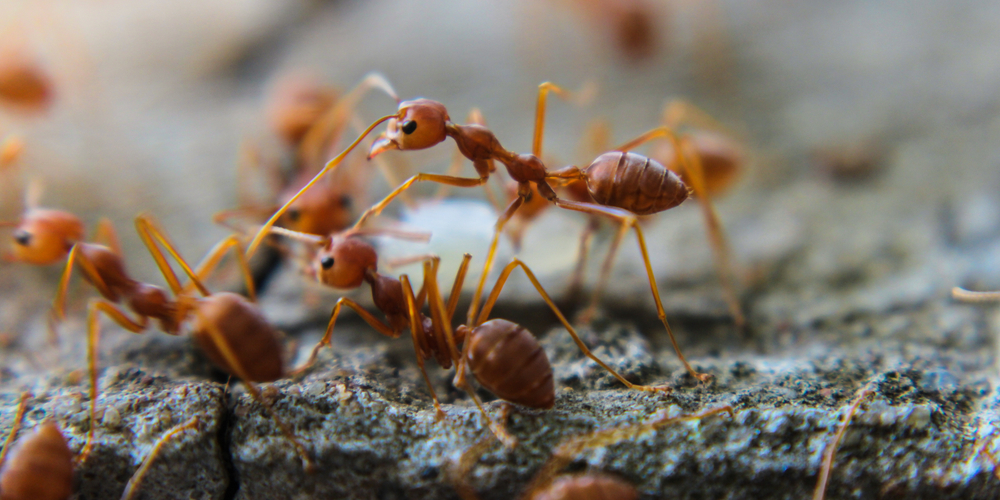Ants – ever-present and often pesky. But did you know that they are actually an important part of the ecosystem? They help to break down matter and aerate the soil, which improves soil life and makes it easier for plants to grow. So while they might not be our favorite creatures, they do serve an important purpose.
There’s a but, however. When ants become too numerous, they can wreak havoc on your lawn. That’s when it’s time to take action. And maybe that has led you to wonder whether neem oil, the most popular natural pesticide, can kill ants.
The answer is yes – neem oil can be effective in killing ants. But there’s a little more to it than just that.
In this article, we’ll explore what you need to know about neem oil killing ants, so keep reading.
Can neem oil kill ants?

Yes, neem oil can kill ants. To achieve this effect, though, you would have to spray the oil directly onto the ants. That’s in consideration that the ants have to come into contact with the oil for them to die.
As such, spraying the plants that ants won’t eat does not count as an effective way of using neem oil to kill these biting insects. Nonetheless, neem oil is effective as an ant repellant, so it will still keep them away from your plants.
How does neem oil kill ants?
As a natural pesticide, neem oil has an active ingredient known as azadirachtin. This component inhibits the proper functioning of an insect’s hormonal system. Once this happens, the insects will be unable to feed, grow, and even lay eggs.
Additionally, neem oil can kill the eggs that an insect has laid. Basically, it kills insects regardless of their lifecycle stage. That’s why spraying neem oil onto ants has the potential of killing the entire colony.
And we’re not yet done. Other than making the ants unable to feed, the oil will also kill aphids, which are a primary source of food for ants. As a result, you will have successfully dealt with the ant infestation that bothers you so much.
Can a neem soil drench kill ants?
Neem soil drench is a systemic insecticide that is simply a mixture of water and cold-pressed neem oil. You apply the insecticide to the soil so that the plants can absorb it.
Once the insecticide is in the plant’s system, insects that chew on the plants will ingest the chemical azadirachtin from the neem oil. As a result, these insects will have their nervous systems disrupted, eventually dying.
Now, coming back to ants, a neem soil drench can kill them. But it will only work if the ants chew on the plants that have been treated with the drench. So, this method is not as effective for a large variety of ant species.
However, the story is totally different with aphids in the picture. Since aphids will feed on the plant directly, the worker ants will take back the contaminated honeydew that they harvest from the aphids back to their colony.
While worker and soldier ants are sterile, the queen and drone ants are not. So, if these ants ingest enough of the azadirachtin, the entire colony will eventually come down.
Will neem oil harm plants?
No, neem oil will not harm your plants, as long as you don’t overuse it. In fact, it’s quite the opposite – neem oil is actually good for your plants. It helps to promote healthy growth, and it can even act as a fungicide.
Is neem oil harmful to humans?
When applied correctly, neem oil is not harmful to humans. In fact, it has even been used in some traditional medicines.
However, neem oil can be harmful if you ingest it or if it comes into contact with your skin and eyes. So, be sure to follow the instructions on the label carefully, and always wear gloves and a mask when handling neem oil.
To sum up,
Neem oil is definitely an effective way of getting rid of ants. To increase its effectiveness, you can use it in combination with other pest control methods. But even on its own, neem oil can be a powerful tool against these biting insects.
Just be sure to use it carefully, and always follow the instructions on the label.

